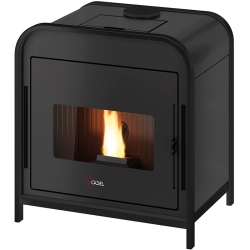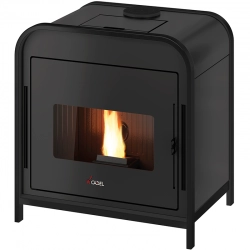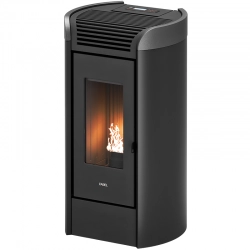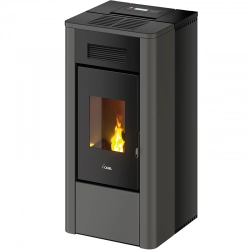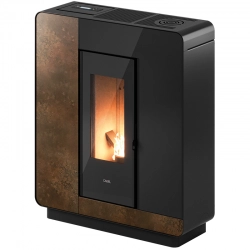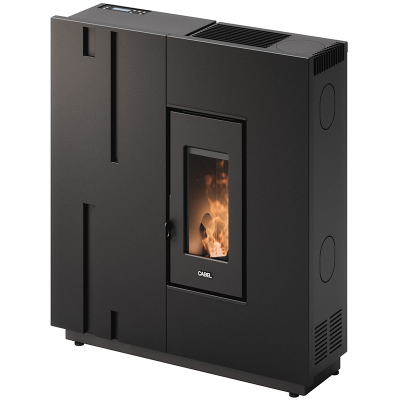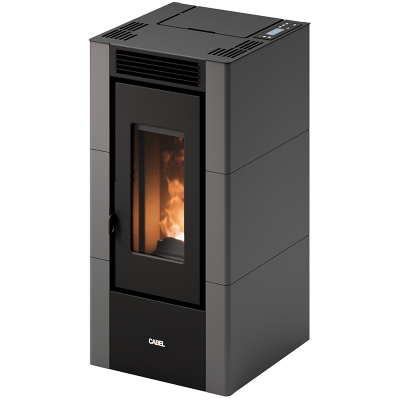Energy grants for detached houses: Focus on pellet boilers, pellet burners, and pellet stoves.
The Swedish government has recently issued a regulation on grants for energy efficiency in detached houses. This regulation is particularly relevant to owners of detached houses who are considering upgrading their heating systems to more energy-efficient solutions, such as pellet boilers, pellet burners, and pellet stoves. The regulation comes into effect on July 3, 2023.
What are pellet heating systems?
Pellet heating systems are a type of biofuel-based heating systems that use wood pellets as fuel. These systems are known for their high energy efficiency and environmental friendliness. They can help reduce the need for electric or gas heating in detached houses, which in turn can lead to reduced heating costs and decreased carbon dioxide emissions.
How can pellet heating systems contribute to energy efficiency in detached houses?
Pellet heating systems can contribute to energy efficiency in detached houses in several ways. Firstly, they can generate a significant amount of heat with a relatively small amount of fuel, making them highly energy efficient. Secondly, they can help reduce dependence on electric or gas heating, which can lead to lower energy costs. Finally, they can contribute to reducing carbon dioxide emissions, as wood pellets are a renewable fuel that emits less carbon dioxide than fossil fuels.
How much grant can I apply for a pellet stove or pellet boiler?
Grants can be provided for up to 50 percent of the eligible costs, but the total amount cannot exceed 30,000 kronor for a conversion. Grants under 10,000 kronor will not be paid out. This means that if you plan to install a pellet stove or pellet boiler in your detached house, you may be eligible for a significant grant to cover part of the costs.
What material costs can I seek reimbursement for?
You can seek reimbursement for material costs for items such as a biofuel boiler (e.g., a pellet boiler or pellet stove), chimney, accumulator tank, pellet storage, or other materials necessary for the implementation of the measures. This can make it more economically feasible for you to upgrade your heating system to a more energy-efficient solution.
How do I apply for the grant?
The County Administrative Board in the county where the detached house is located handles and decides on the applications. The grant should be available for application through an e-service on the Swedish National Board of Housing, Building, and Planning (Boverket) e-service platform from July 3, 2023. The support can be granted retroactively for materials ordered no earlier than November 8, 2022. This means that if you have already started the process of upgrading your heating system, you may still be eligible for the grant.
Requirements to receive the grant
To be eligible for the grant for energy efficiency in detached houses, there are certain criteria that must be met. Firstly, the grant is intended to cover material costs for energy efficiency measures in detached houses heated with electricity or gas. If your detached house uses heat pump technology, the grant can only be given if your air-to-air heat pump is older than ten years.
To be able to apply for the grant, you must be the owner and permanent resident of the detached house where the measures are carried out. Additionally, the entity performing these measures must be approved for F-tax. For foreign entrepreneurs or companies, a certificate showing that the company undergoes equivalent tax and fee control in their home country is required.
It is important to note that grants can only be provided if funds are available. Therefore, it is recommended to apply as soon as possible to maximize the chance of receiving the grant.
Summary
The new regulation on grants for energy efficiency in detached houses offers a fantastic opportunity for detached house owners to upgrade their heating systems to more energy-efficient solutions, such as pellet boilers, pellet burners, and pellet stoves. By doing so, they can not only reduce their heating costs and carbon dioxide emissions but also take advantage of the grants offered by the government.
Please note that this is a general interpretation of the regulation and may not cover all specific details. For a complete understanding of the regulation and how it applies to specific circumstances, it is recommended to consult with the relevant government authority.
Sources
Boverket - Grants for Energy Efficiency in Detached Houses
Regulation (2023:402) on grants for energy efficiency in detached houses (on the government's website)
Related products
Pellet stove CADEL Shell UP 9kW
Pellet Stove CADEL Sweet 7 kW
Pellet Stove CADEL Prince 11 kW
Pellet stove CADEL Shell PS 9kW
Pellet Stove CADEL Quasimodo UP 9 kW
Pellet Stove CADEL Perla 7 kW
Pellet Stove CADEL Grace 7 kW
Pellet Stove CADEL Sound UP 7 kW
Pellet Stove CADEL Spirit 5 kW
Pellet Stove CADEL Frame 9 kW
Pellet Stove CADEL Frame UP 9 kW
Pellet Insert CADEL Zefiro 9 kW
Pellet Stove CADEL Fenice 11 kW
Pellet Stove CADEL Kobe 11 kW
Pellet Stove CADEL Icon Plus 9 kW
Pellet Stove CADEL Tile Plus 10 kW
Pellet Stove CADEL Fenice Plus 11 kW
Pellet Stove CADEL Sound PS 7 kW
Pellet Stove CADEL Hydro River 18kW Hydrotech
Pellet Stove CADEL Kobe Plus 11 kW
Pellet Stove CADEL Prince Plus 11 kW
Pellet Stove CADEL Hublot UP 6 kW
Pellet Stove CADEL Magritte 6 kW
Pellet Stove CADEL Cristal 9 kW
Pellet Stove CADEL Luce Plus 9 kW
Pellet Stove CADEL Elle Plus 9 kW
Pellet Stove CADEL Spin Plus Airtech UP 9 kW
Pellet Insert CADEL Ponente 7 kW
Pellet Stove CADEL Cristal 9 kW Airtech
Pellet stove MCZ Club CORE 10kW
Pellet stove MCZ Musa CORE 10kW
Pellet stove MCZ Ego CORE 8kW
Pellet stove MCZ Mako CORE 8kW
Pellet stove MCZ Suite CORE 10kW
Pellet stove MCZ Eiko CORE 6kW
Pellet Stove CADEL Eclipse Plus 11 kW
Water-jacketed pellet stove MCZ Ego Hydromatic
Pellet Stove CADEL Atena Plus 14 kW
Pellet stove MCZ Mood CORE 8kW
Pellet stove MCZ Feel CORE 12kW
Water-jacketed pellet stove MCZ Star Hydromatic
copy of Water-jacketed pellet stove MCZ Star Hydromatic
Water-jacketed pellet stove MCZ Musa 18/24 Hydromatic
Pellet stove CADEL Cristal 9 kW Air
CADEL Spin Plus Airtech PS 9 kW pellet fireplace
Pellet stove CADEL Bold UP 7 kW
Pelletskamin CADEL Baggy 7 kW
Pellet stove CADEL Cristal 6 kW
Related posts
 Best in class again
Best in class again
 Event - Nordbygg 2020
Event - Nordbygg 2020
 Streamline your pellet burner with lambda control!
Streamline your pellet burner with lambda control!
 Education on Pellet heating for homeowners
Education on Pellet heating for homeowners
 Heating with pellets - frequently asked questions
Heating with pellets - frequently asked questions









